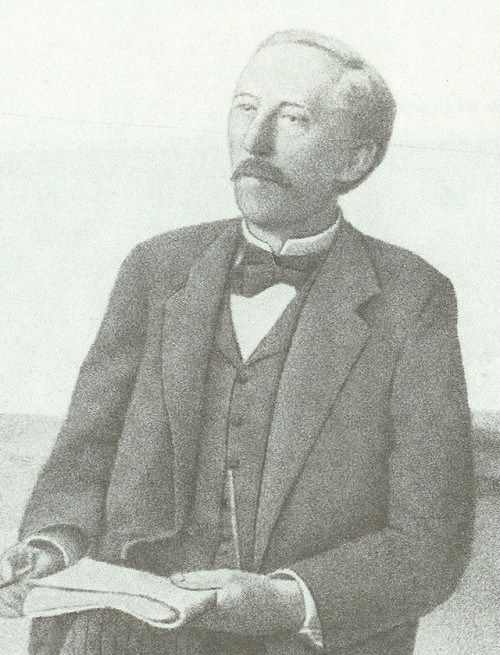Born on the 13th of July, 1848. He studied law and philosophy at the University of Vienna, receiving his PH. D. in 1871 and completing the legal studies in the following year. Afterwards he returned to his family estates in Podolia. His active participation in public life soon won him the reputation of one of the most exciting Polish personages of that period (he was even called the ‘Polish Oscar Wilde’). He took part in the works of the Economic Society in Lviv and of the District Councils of Stanisławów (present–day Ivano-Frankivsk in Ukraine) and Tłumacz (now Tlumach, Ukraine). In 1876 he held a seat in the Diet of Galicia and Lodomeria in Lviv, becoming one of the leading representatives of the Conservative movement of the so-called ‘Podolacy’ (‘Podolians’). In 1879-1885 and 1895-1909 he was also a deputy to the Imperial Council in Vienna, where he played a significant part in the workings of the Polish Club; for instance, he was its deputy chairman in 1900-04 and 1907-09, as well as its chairman in 1904-06). He was highly thought of by the Emperor Francis Joseph I, who appointed him a Privy Councillor of the Crown in 1898. Dzieduszycki also served as the Minister for Galicia in 1906-1907, and was awarded the Knight’s (first class) Order of the Iron Crown in 1907. The final years of his life were spent in Vienna. Despite being involved in public life, he wrote a lot, once again demonstrating his extraordinary versatility. He bequeathed to posterity his novels (for instance, Święty Ptak, or Aurelian), dramas (Bohdan Chmielnicki), translations from Sophocles and Shakespeare, works on the history of art (Historia malarstwa we Włoszech, 1892), essays in cultural history (Ateny, 1878), and studies in philosophy and political thought (Rozstrząsania filozoficzne o podstawach pewności ludzkiej, 1893; Historia filozofii, 1894; Mesjanizm polski a prawda dziejów, 1902; Dokąd nam iść wypada?, 1910). Dzieduszycki was also involved in the works of various cultural and social institutions of Galicia. He lectured at the University of Lviv, where he received the title of Assistant Professor in history of philosophy, moral science, and aesthetics in 1894; in 1896 he became Associate Professor in aesthetics. His lectures and public talks enjoyed great popularity. He died in Vienna on the 23rd of March, 1909.

